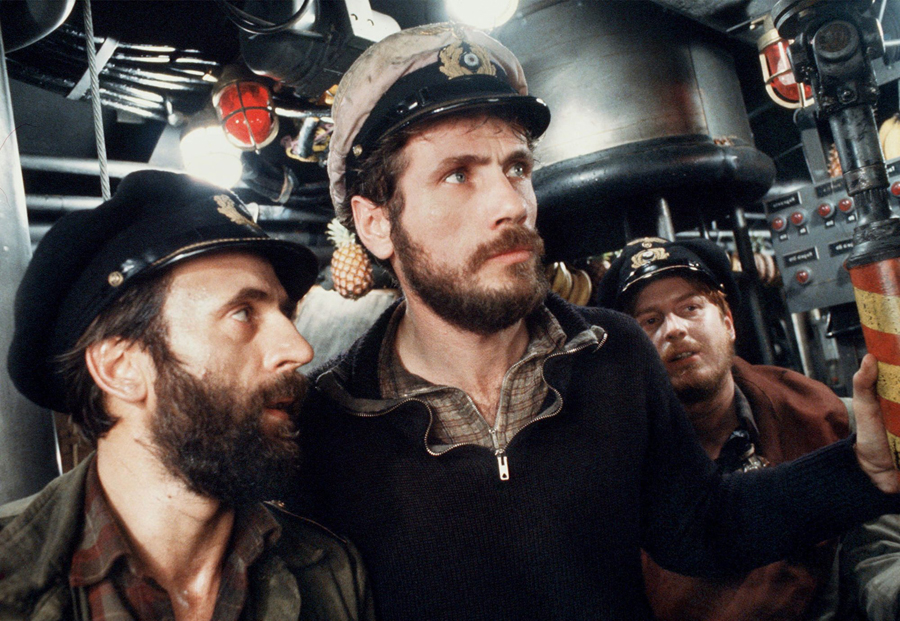DAS BOOT 1981

“Das Boot” (1981) is a German war film directed by Wolfgang Petersen, based on Lothar-Günther Buchheim’s 1973 novel of the same name. Set during World War II, the film follows the crew of the German submarine U-96 as they embark on a perilous mission in the Atlantic Ocean. Known for its intense realism and attention to detail, “Das Boot” is regarded as one of the greatest war films ever made.
The narrative is presented through the eyes of Lieutenant Werner (Herbert Grönemeyer), a war correspondent assigned to document the U-boat’s mission. The film begins with the crew enjoying a night of revelry in La Rochelle, France, before setting out to sea. Captain Heinrich Lehmann-Willenbrock (Jürgen Prochnow) leads the crew with a mix of stoicism and experience, guiding them through the grueling and dangerous conditions of underwater warfare.
As U-96 navigates the Atlantic, the crew faces constant threats from Allied forces, including depth charges and enemy aircraft. The film vividly portrays the claustrophobic and tense environment of the submarine, capturing the psychological strain on the crew. Moments of quiet and boredom are punctuated by sudden, life-threatening encounters, creating a relentless atmosphere of suspense.
Wolfgang Petersen’s direction excels in immersing the audience in the submarine’s confined space. The film’s cinematography, by Jost Vacano, uses handheld cameras and tight framing to convey the claustrophobia and intensity of life aboard the U-boat. The sound design, featuring the creaking of the hull and the ominous pings of sonar, enhances the sense of impending danger. Klaus Doldinger’s haunting score underscores the emotional weight of the film.
The performances in “Das Boot” are exceptional, with Jürgen Prochnow delivering a standout portrayal of the weary yet resolute Captain. Herbert Grönemeyer, as Lieutenant Werner, serves as the audience’s surrogate, capturing the transformation from an observer to a participant deeply affected by the horrors of war. The supporting cast, including Klaus Wennemann, Jan Fedder, and Erwin Leder, contribute to the film’s authentic depiction of camaraderie and conflict among the crew.
One of the film’s key strengths is its unflinching portrayal of the human side of warfare. “Das Boot” does not glorify the actions of the U-boat crew but instead presents them as ordinary men facing extraordinary circumstances. The film explores the moral ambiguities and futility of war, emphasizing the shared humanity of those on both sides of the conflict.
“Das Boot” was a critical and commercial success, earning six Academy Award nominations, including Best Director and Best Cinematography. It remains one of the highest-grossing German films of all time and has had a lasting impact on the war film genre. Its influence is evident in subsequent films and series that depict submarine warfare with a similar commitment to realism and emotional depth.
In conclusion, “Das Boot” is a powerful and immersive war film that offers a deeply human perspective on the experiences of those who served on the front lines. Its technical brilliance, compelling performances, and unflinching depiction of the realities of war make it a timeless classic that continues to resonate with audiences worldwide.










